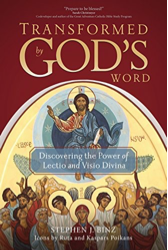Introduction
Cell groups are reserved for those that have made their Final Oblation in affiliation with Sacred Heart Monastery unless other arrangements have been made. Please contact Jim Rea, Lead Dean, for more information.
Cell Group Formation
Ongoing formation is a lifelong commitment and often takes place in the context of a community. Participation in monthly community meetings of the Nebraska Benedictine Oblates provides an opportunity for ongoing formation within a Benedictine community.
Following an individual’s Final Oblation, to supplement attendance at the monthly community meetings, the opportunity is available to participate in a small group (cell group), which allows for a more personal and intimate setting for encouragement and support in continuing one’s formation.
Oblates gather in cell groups for common prayer, study of The Rule, discussion of applying The Rule in life settings, and discussion of readings relevant to Benedictine life and practice. Cell groups meet on different days and times, as well as frequency (some meet every other week, others meet once a month). Small groups provide opportunities that are not feasible in larger community meetings.
Cell groups are a vital resource to enable loving connections with fellow Oblates where one’s growth and service in the Benedictine tradition can be strengthened and matured. The model is the ancient small houses (cellae) of the monks.
In order to coordinate the overall effectiveness of the cell group communities, an Oblate who has an interest in joining a particular cell group can make this request to the Oblate Deans. If there is a preference for a particular group, or if logistical considerations make one group more accessible than another, the Oblate Deans will make every effort to accommodate the request. In addition, the cell group leader will be contacted about the request and the decision.
The Deans can also provide further information about the availability of all cell groups currently meeting. When a person makes a request for membership in a cell group, the request will be considered at the next monthly meeting of the Deans with attendance to begin following their approval. If there are extenuating circumstances that make attendance at one particular cell group of high priority, contact the Deans when making this request.
Hastings Cell Group:
2022–2023
Saint Scholastica Cell
Info: Please contact Hastings Dean Juliene Bryan for details about Hasting Chapter meetings
Lincoln Cell Groups:
2022–2023
Beginners’ Cell
Leader: Marti Fritzen
Meetings: Monthly on the fourth Sunday at 7:00 p.m., beginning with Vespers in the chapel at Madonna Rehabilitation Hospital. Then the group goes to the Platte Room for its gathering.
The Rule of Benedict (RB 73:8) says that the rule is for beginners; we are all beginners and all are welcome to this cell.
Pax Christi Cell
Leader: Lorene Ludy
Meetings: Monthly on the third Tuesday from 7:00 to 8:30 p.m. at Mary Lu Long’s house, 1615 Brent Blvd., Lincoln.
Preferring Christ Cell
Leaders: Charlotte Liggett
Meetings: Monthly on the fourth Sunday at 7:00 p.m., beginning with Vespers in the chapel at Madonna Rehabilitation Hospital.
Readings come from Preferring Christ by Norvene Vest.
Cell Group Readings: 2022–2023
Text: Transformed by God’s Word: Discovering the Power of Lectio and Visio Divina, Stephen J. Binz, ISBN 978-1-5947-1651-5.
The cell groups will begin reading this book in September 2022. Reading assignments follow.
2022
September
Preface, The Ancient Tradition of Lectio Divina, Experiencing God’s Word through Icons, & The Formative Experience of Lectio and Vision Divina (pp. vii–26).
October
Annunciation & Visitation (pp. 27–45).
November
The Nativity of Christ (pp. 47–55).
December
The Presentation in the Temple (pp. 57–65).
2023
January
Jesus Is Found in the Temple & The Baptism of Jesus (pp. 67–85).
February
The Wedding at Cana (pp. 87–95).
March
The Proclamation of God’s Kingdom (pp. 97–104).
April
The Transfiguration of Jesus Christ (pp. 105–113).
May
The Last Supper (pp. 115–122).
Reading assignments for the 2023–2024 Oblate Year will be shared later.
